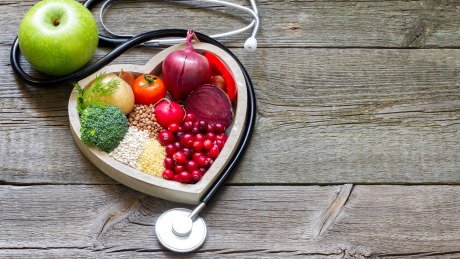Fruits and vegetables are rich in fiber, vitamins, minerals, antioxidants, and photochemical. These substances help lower cholesterol levels and reduce the risk of heart disease. Fruits and vegetables are also low in sodium, which helps keep blood pressure under control.
Drink at least eight glasses of water each day
Drinking enough water keeps the body well-hydrated and helps flush out toxins. Water also helps regulate blood pressure.
Limit salt intake
Salt is not good for anyone’s health, especially those who have high blood pressure. If possible, limit your daily sodium intake to less than 2,300 milligrams (mg).
Avoid alcohol
Alcohol raises blood pressure and increases the risk of stroke. Moderate drinking may increase blood pressure slightly, but heavy drinking can cause hypertension.
Reduce caffeine consumption
Caffeine can raise blood pressure. Caffeine is found in coffee, tea, chocolate, soft drinks, and some medications. Try cutting back on caffeinated beverages if you’re having trouble controlling your blood pressure.
Exercise regularly
Exercise lowers blood pressure and reduces stress. Aim for 30 minutes of moderate exercise five times per week.
Maintain a healthy weight
Being overweight puts extra strain on the heart and arteries. Being obese increases the risk of developing high blood pressure.
Know What to Eat
- Protein
Protein is the building block of muscle tissue and is necessary for the proper growth and repair of cells. Plants require protein for many processes including photosynthesis, respiration, and cellular division. There are two types of protein; non-essential and essential. Essential proteins are those that cannot be synthesized by the body and therefore must be obtained from food. Non-essential proteins are those that can be produced by the body and do not need to be consumed.
- Fats
Fats are a type of lipid (fatty acid) that is stored in the adipose tissue of animals and humans. In plants, fats are called lipids and they are a major constituent of membranes. Fatty acids are classified according to their length and degree of saturation. Saturated fatty acids have no double bonds between carbon atoms while unsaturated fatty acids have at least one double bond. Monounsaturated fatty acids have one double bond while polyunsaturated fatty acids have several double bonds.
- Carbohydrates
Carbohydrates are a class of molecules composed of carbon, hydrogen, and oxygen. Sugars, starches, cellulose, and glycogen are examples of carbohydrates. These compounds are broken down into simple sugars, such as glucose, fructose, and sucrose. Simple sugars are easily absorbed by the body and provide quick energy. Starch is a complex carbohydrate that is stored in the plant’s cells and provides long-term energy reserves. Cenforce 150 Mg is used to control blood pressure.
- Fiber
Fiber is a group of carbohydrates that are insoluble in water. Soluble fiber dissolves in water and forms gels, whereas insoluble fibers remain undisclosed. Insoluble fiber helps to lower cholesterol levels and reduce blood pressure. It is also associated with a reduced risk of heart disease and some cancers. Dietary fiber is found in whole grains, fruits, vegetables, legumes, nuts, seeds, and dairy products.
- Water
Water is a chemical compound that consists of hydrogen and oxygen bonded together. Water is the primary solvent for all substances in our bodies. Water is also the most significant molecule in the universe and is present in all living things. Water is essential for the survival of all organisms.
- Minerals
Minerals are elements that are naturally occurring in rocks and soils. They are often referred to as minerals. Most plants take minerals from the soil and use them to build their structures. Minerals play a role in maintaining the structure of bones and teeth, regulating hormones, and keeping muscles strong. Minerals are needed to form enzymes, hormones, antibodies, and vitamins.
- Vitamins
Vitamins are organic compounds that are essential to human nutrition. They help maintain normal metabolic activity and regulate certain biochemical reactions. A vitamin is a substance that is manufactured by the body or ingested from foods.




